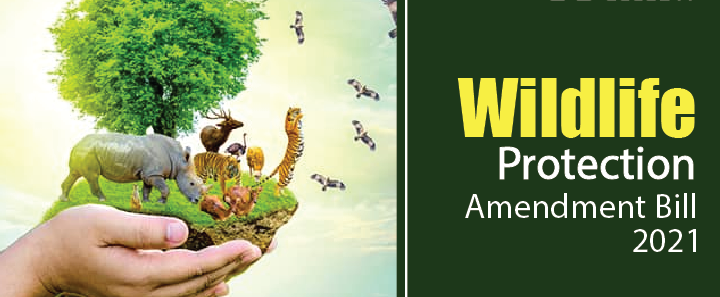India achieves landmark milestone, over 75000 startups recognised (GS Paper 3, Indian Economy)

Why in news?
- Recently, the Union Minister for Commerce & Industry, announced that India has achieved a landmark milestone, wherein 75000 startups have been recognized in the country.
- The Department for Promotion of Industry and Internal Trade (DPIIT) has recognized more than 75,000 startups- a milestone which coincides with 75th year of independence.
Key Highlights:
- Out of the total recognized startups, around 12% cater to IT services, 9% to Healthcare and Life Sciences, 7% to education, 5% to professional and commercial services and 5% to agriculture.
- An impressive, 7.46 lakh jobs have been created by the Indian startup ecosystem, so far, which has been a 110% yearly increase over the last 6 years.
- The fact that about 49% of our startups are from Tier II & Tier III today is a validation of the tremendous potential of our country’s youth.
Background:
- During the Independence Day speech from the Red Fort on 15th August 2015, Prime Minister Narendra Modi had envisioned a new India which taps on the entrepreneurial potential of its people.
National Startup Day:
- On 16th January 2016, the date which has now been declared as the National Startup Day, a program was initiated to lay out an action plan to build a strong ecosystem for nurturing innovation and startups in the country.
- 6 years hence, the action plan has successfully guided into making India the 3rd largest ecosystem. While the initial ten thousand startups were recognized in 808 days, the latest ten thousand were achieved in only 156 days. With more than 80 Startups getting recognized per day- highest rate in the world, the future of the startup culture is very promising and encouraging.
Role of Startup India program:
- Startup India program which was primarily setup to provide an enabling environment for the startups, has today evolved into the launchpad for them.
- From providing funding to tax incentives, from support on intellectual property rights to eased public procurement, from enabling regulatory reforms to access to international fests and events, Startup India program has become synonymous with sustainable economic growth.
Lok Sabha passes Central Universities (Amendment), Bill 2022
(GS Paper 2, Governance)
Why in news?
- Recently, the Lok Sabha passed Central Universities (Amendment), Bill 2022 for conversion of the National Rail and Transportation Institute (NRTI), a Deemed to be University into Gati Shakti Vishwavidyalaya (GSV), an autonomous Central University under the administrative control of the Ministry of Railways.

Background:
- The bill seeks to amend Central Universities Act, 2009, which was enacted to establish and incorporate universities for teaching and research in various states.
- The National Rail and Transportation University is located in Vadodara.
Objects and reasons:
- The statement of objects and reasons of the bill states that the proposed University will reverse brain drain and create critical capability and capacity by developing masters and doctoral degrees in transportation and go a long way in making the nation self-reliant in the transportation sector through its programmes for skilling and digitising India.
Scope of Gati Shakti University:
- It will carry out critically-needed research and development by creating innovative technologies to encourage local manufacturing and substitute the imports of expensive technology, equipment and products.
- It will also take additional measures for providing high-quality teaching, research and skill development in diverse disciplines related to transportation, technology and management including establishing centres in India and abroad.
- The scope of the proposed University will also extend beyond the railways to cover entire transport sector to support the ambitious growth and modernisation of the sector.
Way Forward:
- The students of future would need to learn about environment, commerce, and social sciences, in addition to STEM to succeed in the infrastructure sector and a world-class, multi-disciplinary, multi-dimensional futuristic institution called Gati Shakti University has been envisioned.
Wild Life (Protection) Amendment Bill, 2021
(GS Paper 3, Environment)
Why in news?
- Recently, the Wild Life (Protection) Amendment Bill, 2021 was passed by Lok Sabha.
- The bill, first introduced in Lok Sabha by the Minister of Environment, Forest and Climate Change on December 17, 2021, amends the Wild Life (Protection) Act, 1972.

Details:
- It aims for better management of protected areas and provides for certain permitted activities such as grazing or movement of livestock, and bona fide use of drinking and household water by local communities.
- The bill was introduced to amend the Wild Life Protection Act of 1972 by implementing the Convention on International Trade in Endangered Species of Wild Fauna and Flora (CITES) and expanding the number of species protected by the convention.
CITES:
- CITES is an international agreement signed between governments in 1973 to ensure that international trade in wild animals and plants does not threaten the species.
- The convention classifies plans and animal species into three categories based on threat assessments.
- It is a convention that requires countries to regulate the trade of all listed specimens through permits and regulate the possession of live animal specimens so it does not threaten the survival of the species.
Key Highlights:
Number of schedules:
- The previous Wild Life (Protection) Act, 1972 had six schedules for specially protected plants (one), specially protected animals (four), and one vermin species (small animals that carry disease and destroy food).
- The amended bill reduces the total number of schedules to four by eliminating the schedule for vermin species and reducing the number of schedules for specially protected animals to two. It also inserts a new schedule for specimens listed under CITES.
Regulation of trade:
- The Bill provides for the central government to designate an authority which grants export or import licences for the trading in specimens. Anyone who trades in a scheduled specimen must inform the appropriate authority of the transaction's specifics.
- The authority may use an identification mark for a specimen which, the bill, prohibits any person from removing or modifying.
- Additionally, people possessing live specimens of scheduled animals must obtain a registration certificate from the Management Authority.
- The Bill gives the government the authority to control or outlaw the import, trade, and possession of invasive alien species, or those that are not indigenous to India.
Penalty:
- The bill increases the penalty for violations of the provisions of the bill. Under the 1972 act, the general fine was up to ₹25,000 which has been increased to ₹1,00,000.
- For violating the provisions meant for specially protected animals, the previous fine was up to ₹10,000 and now has been increased to at least ₹25,000.
Other provisions:
- The bill will also ensure greater control and regulation of wildlife sanctuaries and empower the government to notify a conservation reserve, an area located next to sanctuaries or national parks to protect the flora and fauna.
- The Act entrusts the Chief Wild Life Warden to control, manage and maintain all sanctuaries in a state and that the actions must be in accordance with the management plans for the sanctuary.
- Additionally, the bill provides for any person to voluntarily surrender any captive animals or animal products for which no compensation will be awarded and the items will become the property of the state government.
Uttar Pradesh’s first tabletop airport
(GS Paper 3, Infrastructure)
Why in news?
- The Uttar Pradesh’s Chitrakoot is set to get its first tabletop airport. The development comes at a time when the town is witnessing a surge in the number of tourists.
Details:
- The first tabletop airport of the state constructed at the cost of Rs 146 crore is ready.
- This will be the first operational airport of Bundelkhand and will be managed by the Airport Authority of India (AAI).
- After acquiring the licence from the Directorate General of Civil Aviation (DGCA), a 20-seater aircraft will also start flying from here under the UDAN scheme.
- The ropeway at Chitrakoot has been the centre of attraction for tourists visiting Chitrakoot since September 2019.
Chitrakoot:
- Chitrakoot, the holy land where Lord Shri Ram spent most of his exile (about 11 years) and which is situated on the Vindhya hills, has started attracting tourists from all over the globe for its history and beauty.
- Chitrakoot has several tourist spots, such as Gupt Godavari, Kamadgiri Parvat, Bharatkup, Ganeshbagh, Sati Anusuiya Ashram, Rajapur, Dharkudi, Jankikund, Ramghat and Bharat Milap Temple and Chitrakoot waterfall, Hanuman stream and Sphatik Shila, which are reminiscent of Lord Ram’s visit along with his brother Lakshman and wife, Sita.

Digital developments:
- Shri Chitrakoot Dham Teerth Development Council, which is looking after the maintenance of Chitrakoot, has been entrusted with the responsibility to ensure holistic development, including enriching the natural surroundings further, while conserving the rich heritage of the pilgrimage destination.
- The Council has completed work on the laser show on the water screen and the digital Ramayana gallery at the cost of Rs 5.29 crore.
- Ramlila theatres, painting competitions and other programmes are organised under the Ramayana Conclave in Chitrakoot.
Ranipur to become a tiger reserve:
- On International Tiger Day-2022, held on July 29, Chief Minister announced that Ranipur will soon be developed as the fourth tiger reserve of the state.





